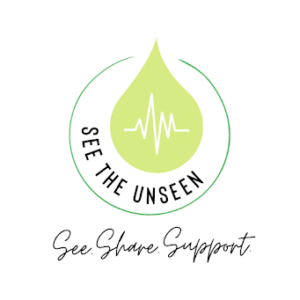It gets on my nerves, the way people view journalists. A prime example, and one of many, is the time I went to buy a rug with my mom. The man working at the store asked me what I was studying. When I told him journalism, he responded, southern drawl strong, “Good! You going to get out there and set those liberal news channels straight?” I chuckled and agreed, but inwardly? I was angry, but I was not about to get into an argument with a stranger.
The most common line I get is some form of the expression, “They need all the help they can get, don’t they?” Like every journalist is scheming, trying to divide America, and the industry is falling apart because of it.
It frustrates me when people equate “journalism” with whatever CNN or Fox News-esque outlet they hate. I do not plan on doing anything like that with my degree, but every journalism grad is just a cog in the Fake News machine, right?
I understand the distrust of corporations. Huge media companies own the majority of the local news channels. Think about Oklahoma City. KFOR is owned by NBC. KOCO is owned by ABC. News 9 is owned by CBS. Fox 25 is owned by, you guessed it, Fox. If you want to get a job and make money as a journalist, guess what? You are part of the machine now.
And if your morals are too pure for that, flood your unaffiliated site with ads or make journalism your hobby while you work a different job so you can survive. There are outlets in Oklahoma City more independent than the ones listed above, but those come with their own troubles. The Oklahoman, now owned by large newspaper conglomerate Gatehouse Media, has done rounds of layoffs. Smaller sites like NonDoc have had to suspend operations for months at a time because they ran out of funds. If you have student loan debt or a family to support, working independently is not a viable option.
So quit with the hate. Quit blaming us for the world’s problems. We are just reporting them. We are not going to stay in business running stories saying everything’s going pretty OK. They will fire us if we try that.
Take, for example, the Talon. We are a small online daily serving a campus community of about 2,000, but at the beginning of the semester, our reader count was not very high.
We were not stirring up any trouble by running articles putting school administration in a bad light. We were not fabricating stories to get clicks. Nothing controversial was going on, so we were not writing anything controversial. But people are interested in controversial things. You cannot argue with the truth of that statement. Just the data from our small student newspaper backs it up, and I am sure it is the same for other publications. Our clicks are higher when something is going on. And not something good. Here is an example.
At the end of September, Scot McKnight gave a lecture on campus. A few hundred people were in attendance. McKnight is a New Testament scholar who focuses on the historical aspects of Christianity and has written multiple books about it. We ran two stories on the event. One was a preview before the lecture, and one was a recap of what McKnight said at the event. Neither article placed in our Top 3 stories for the week. The community did not comment on our social media posts. We published them, a few people read them and that was that. Coverage of a positive event.
Now, two weeks later. When we found out white supremacist stickers were spotted on campus, we decided to run a story on it. In the time it took us to research the story, more stickers showed up on campus, the FBI got involved and no one knew who was doing it. We published the story, and it now has over 950 views. People were reading it and sharing it on social media.
That is quite the difference from McKnight’s lecture a couple of weeks prior. Which story are people reading? Which one reminds people why the Talon is an important institution to have on campus?
So when people talk about how the media picks negative stories and tries to scare the public on purpose, or does nothing except push a liberal agenda, I want them to think about the people writing, filming and recording these stories as people with jobs and bosses, just like everyone else. Journalists are under constant pressure to produce content which will get people reading. If good, wholesome stories kept us in business, we would be pushed to publish more of those, but it is often the negative, controversial stories which are deemed more newsworthy.
Do not hate us for trying to do our jobs well enough to keep them. Hate the corporations allowed to monopolize the industry. Hate the death of the independent newspaper under the inevitable crush of capitalism and evolving technology. Hate the companies paying their journalists a barely livable wage and fighting against unions.
Do not blindly hate the media, and do not direct your anger at the individual journalist.














Be First to Comment